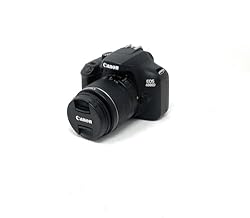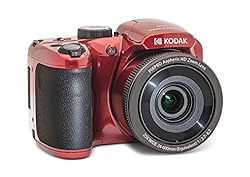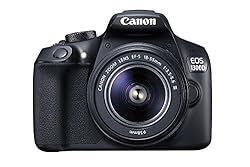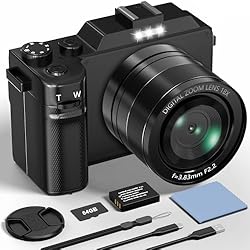Capturing Moments: Why a DSLR Camera is the Ideal Gift for Any Occasion 📸
When it comes to finding a gift that truly captures the essence of someone's passion, a DSLR camera stands out as one of the most thoughtful and versatile options. Whether they’re a budding photographer or a seasoned pro, a DSLR camera offers a world of creative possibilities that other gifts simply can’t match. It's a present that keeps on giving, providing endless opportunities for exploration, learning, and, of course, beautiful memories.
What makes a DSLR camera such a remarkable gift? For starters, it’s all about the freedom it gives the recipient. Unlike smartphone cameras, DSLRs offer full creative control, allowing them to experiment with settings like exposure, aperture, and shutter speed. This means they can take their photography to the next level, capturing stunning images that reflect their unique perspective. Whether it's portraits, landscapes, or candid moments, the high-quality results are bound to impress.
But it’s not just about the technical aspects. A DSLR camera is a powerful tool for telling stories and preserving memories. It’s a gift that encourages creativity and inspires exploration. It can be the gateway to a new hobby or passion, or it can elevate an existing one to professional heights. From birthday surprises to milestone celebrations, gifting a DSLR is a gesture that says you truly understand their interests and want to help them unlock their full potential.
A Comprehensive Guide to Choosing the Perfect DSLR Camera Gift 📷
Selecting the right DSLR camera as a gift can feel like a daunting task, especially if you're not well-versed in photography. But don’t worry! With a little guidance, you’ll be able to choose the perfect model that suits the recipient's needs, skill level, and interests. Here’s everything you need to know to get started:
1. Know Their Skill Level
Understanding the recipient’s experience with photography is crucial when selecting a DSLR camera. Not all models are created equal, and some are better suited to beginners, while others are aimed at professionals. Here’s a quick breakdown:
- Beginner-Friendly Models: These are designed for people who are just starting out in photography. They offer automatic modes and simplified controls that make it easy to capture good shots without needing much technical knowledge. Look for features like a guide mode or intuitive menus.
- Intermediate Models: If the person has dabbled in photography but isn’t quite a pro, consider an intermediate DSLR. These cameras offer more manual controls and additional features like better autofocus and higher resolution.
- Professional DSLR Cameras: These cameras are perfect for experienced photographers. They provide advanced features like exceptional low-light performance, faster frame rates, and more robust build quality. Professionals will appreciate the greater level of customisation and control.
2. Consider the Lens Selection
DSLR cameras are prized for their ability to interchange lenses, and choosing the right one can elevate your gift. Keep in mind the recipient's photography style when considering lenses:
- Standard Lenses: Most entry-level DSLR cameras come with a standard 18-55mm lens, which is perfect for everyday shooting. It’s versatile enough for landscapes, portraits, and general photography.
- Prime Lenses: These fixed focal length lenses (e.g., 50mm) deliver sharp images with a more natural bokeh effect. They are a great choice for portrait photography.
- Telephoto Lenses: For those interested in wildlife or sports photography, a telephoto lens offers the ability to zoom in on distant subjects while maintaining excellent image quality.
- Wide-Angle Lenses: Ideal for landscape photographers, wide-angle lenses allow for expansive shots of nature, architecture, and interior spaces.
You may want to consider including a lens kit or ensuring the recipient has access to a variety of lenses if they’re more advanced.
3. Key Features to Look For
Different DSLR cameras offer varying features that enhance the photography experience. Here are a few key ones to keep in mind when choosing your gift:
- Megapixels: While high megapixel count isn’t always the most important feature, a camera with a higher resolution will allow for larger prints and better cropping flexibility. Look for models with at least 20 megapixels for sharp, detailed images.
- Sensor Size: The size of the image sensor impacts image quality, particularly in low light. Full-frame sensors provide excellent performance but come at a higher price point, while APS-C sensors (found in most entry-level and mid-range models) are a great option for most users.
- Autofocus System: A fast, accurate autofocus system is essential for capturing sharp images, especially when photographing moving subjects like pets or children. Look for cameras with multiple autofocus points and advanced tracking capabilities.
- Burst Rate: For fast action shots (sports, wildlife, etc.), the burst rate refers to how many frames the camera can capture per second. A faster burst rate is essential for those who want to shoot high-speed moments without missing a thing.
- Video Capabilities: Many modern DSLRs are capable of shooting high-quality video, some even in 4K. If the recipient is interested in videography, look for models that offer video features like autofocus in video mode, microphone inputs, and high-definition recording options.
- Build Quality & Ergonomics: The camera’s build quality is important, especially for users who plan on using it outdoors or in harsh environments. Look for weather-sealed models if they intend to shoot in all kinds of conditions. Additionally, consider the weight and grip—heavier models may not be ideal for someone who needs portability.
4. Consider the Camera's Brand
While there are numerous brands on the market, some of the most well-known and trusted in the world of DSLR cameras are Canon, Nikon, and Sony. Each has its strengths, so you’ll want to consider the brand preferences or current gear of the person receiving the camera:
- Canon: Known for its user-friendly interface and excellent colour reproduction, Canon is a great choice for beginners and intermediate photographers. The brand’s extensive range of lenses and accessories is also a big selling point.
- Nikon: Nikon cameras are renowned for their excellent build quality and low-light performance. Nikon is often a top choice for professional photographers and enthusiasts.
- Sony: While Sony’s mirrorless cameras tend to dominate the market, they also offer a range of highly regarded DSLR models. Sony is known for cutting-edge technology and superior autofocus systems.
While the brand isn’t always the deciding factor, it’s worth considering their current camera setup or any brand loyalty they may have.
5. Additional Accessories to Enhance the Gift
If you really want to go above and beyond with your gift, consider pairing the DSLR camera with some helpful accessories that will elevate the recipient’s photography game. Here are some thoughtful additions:
- Camera Bag: A sturdy, well-organised camera bag ensures that the camera and lenses are kept safe and easy to carry.
- Tripod: Perfect for long exposure shots or when shooting in low light, a good tripod is essential for any photographer’s kit.
- Memory Cards: Make sure the recipient has ample storage for their photos. Opt for high-capacity and fast-write-speed memory cards to keep up with high-resolution shooting.
- Spare Batteries: Photography sessions can drain a camera’s battery quickly, so having a spare or two is always a good idea.
- External Flash: For those interested in portrait or event photography, an external flash provides better lighting control compared to the built-in flash.
- Cleaning Kit: A camera cleaning kit is essential for keeping lenses free from dust and smudges. It includes tools like lens brushes, microfiber cloths, and cleaning solutions.
6. DSLR Cameras vs Mirrorless Cameras
Many modern photographers are opting for mirrorless cameras, which are smaller, lighter, and offer advanced features similar to DSLRs. However, DSLRs still have certain advantages that make them a top choice for many. Here’s a quick comparison:
- DSLR Cameras: Larger, with an optical viewfinder that offers a clear, real-time image of the scene. They tend to have better battery life and a wider selection of lenses.
- Mirrorless Cameras: Smaller, lighter, and often more compact, with an electronic viewfinder or digital screen. They offer fast autofocus and video capabilities but may have slightly shorter battery life compared to DSLRs.
Depending on the recipient’s style, a DSLR could be the ideal choice for its durability and range of lenses, while a mirrorless camera may be the better option for portability and cutting-edge technology.
Your DSLR Camera Shopping Questions Answered 🎥
Before you make that final decision, you might have a few lingering questions. Don’t worry—we’ve got you covered.
What’s the best DSLR camera for beginners?
For beginners, look for cameras with simple controls and automatic modes, such as the Canon EOS Rebel series or the Nikon D3500. These models offer great image quality without overwhelming the user with too many settings.
How do I know if the camera is compatible with other lenses?
Each DSLR brand has its own lens mount system, so it’s important to check compatibility before purchasing additional lenses. Canon, Nikon, and Sony have extensive lens selections that fit their cameras, but third-party lenses (like those from Sigma and Tamron) are also available for most models.
Can a DSLR camera be used for video recording?
Yes! Many DSLRs offer excellent video recording features, especially in the higher-end models. Look for cameras that offer Full HD or 4K video recording if the recipient is interested in videography.
Do I need to buy a camera with Wi-Fi?
Wi-Fi connectivity is useful for quickly transferring photos to mobile devices or social media, but it’s not essential. If the recipient is tech-savvy, look for a camera with built-in Wi-Fi, Bluetooth, or NFC for seamless sharing.
How important is the camera’s sensor size?
The sensor size impacts the image quality, particularly in low light. A full-frame sensor offers the best performance, but APS-C sensors are still excellent for most users and tend to be more affordable.
Wrapping It Up: The Last Word on DSLR Cameras as Gifts 🎁
Choosing a DSLR camera as a gift is a brilliant way to inspire creativity and capture memories that will last a lifetime. With a little research and thought, you can find the perfect model for any recipient, whether they’re just starting out in photography or are seasoned experts looking for an upgrade.
Remember to consider their skill level, preferred features, and photography style to select the ideal camera. By pairing the DSLR with useful accessories, you’ll ensure that your gift is not only thoughtful but also incredibly practical. No matter the occasion, a DSLR camera is a gift that will truly stand the test of time—providing endless opportunities for creativity and stunning memories.

















